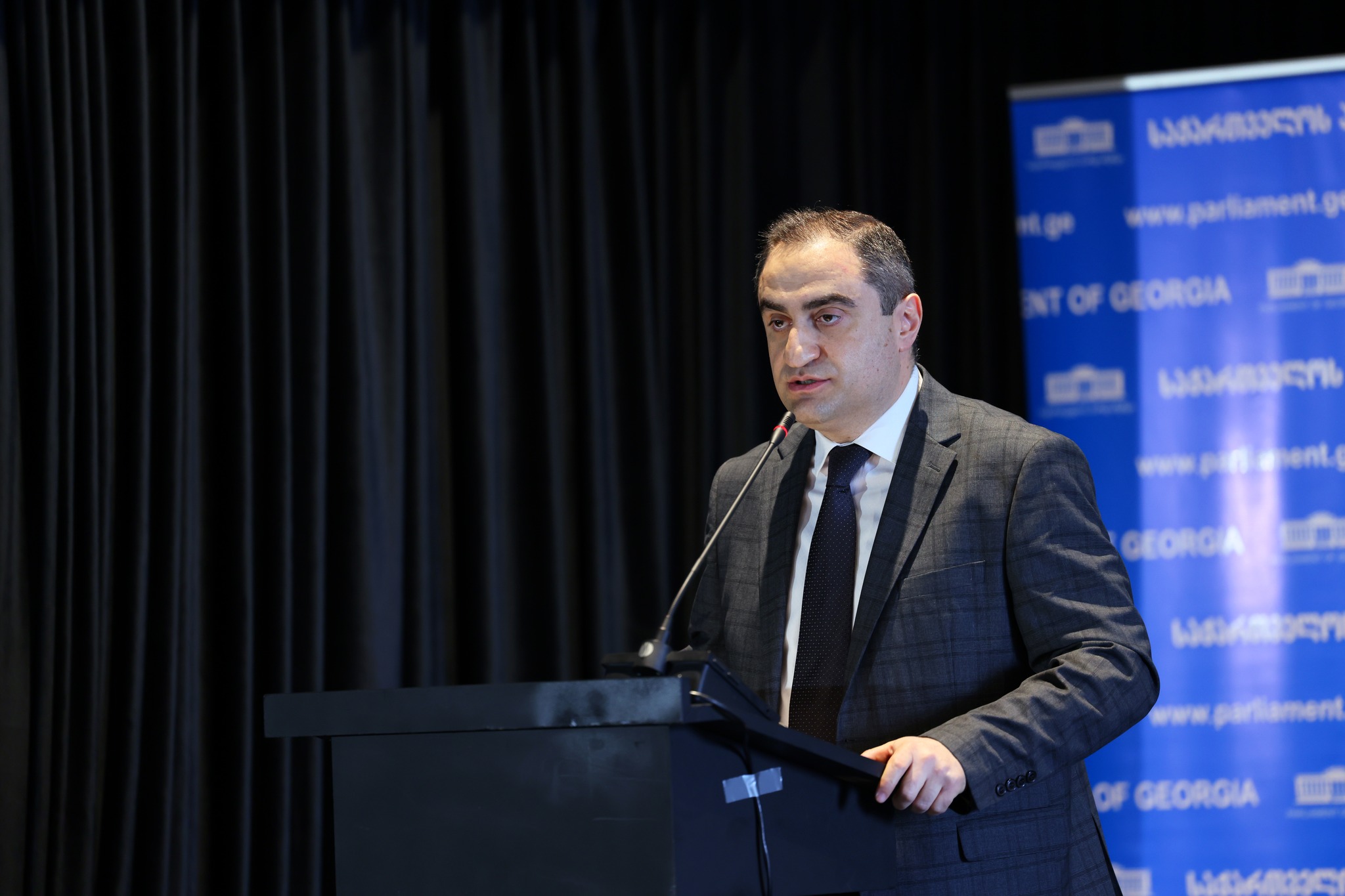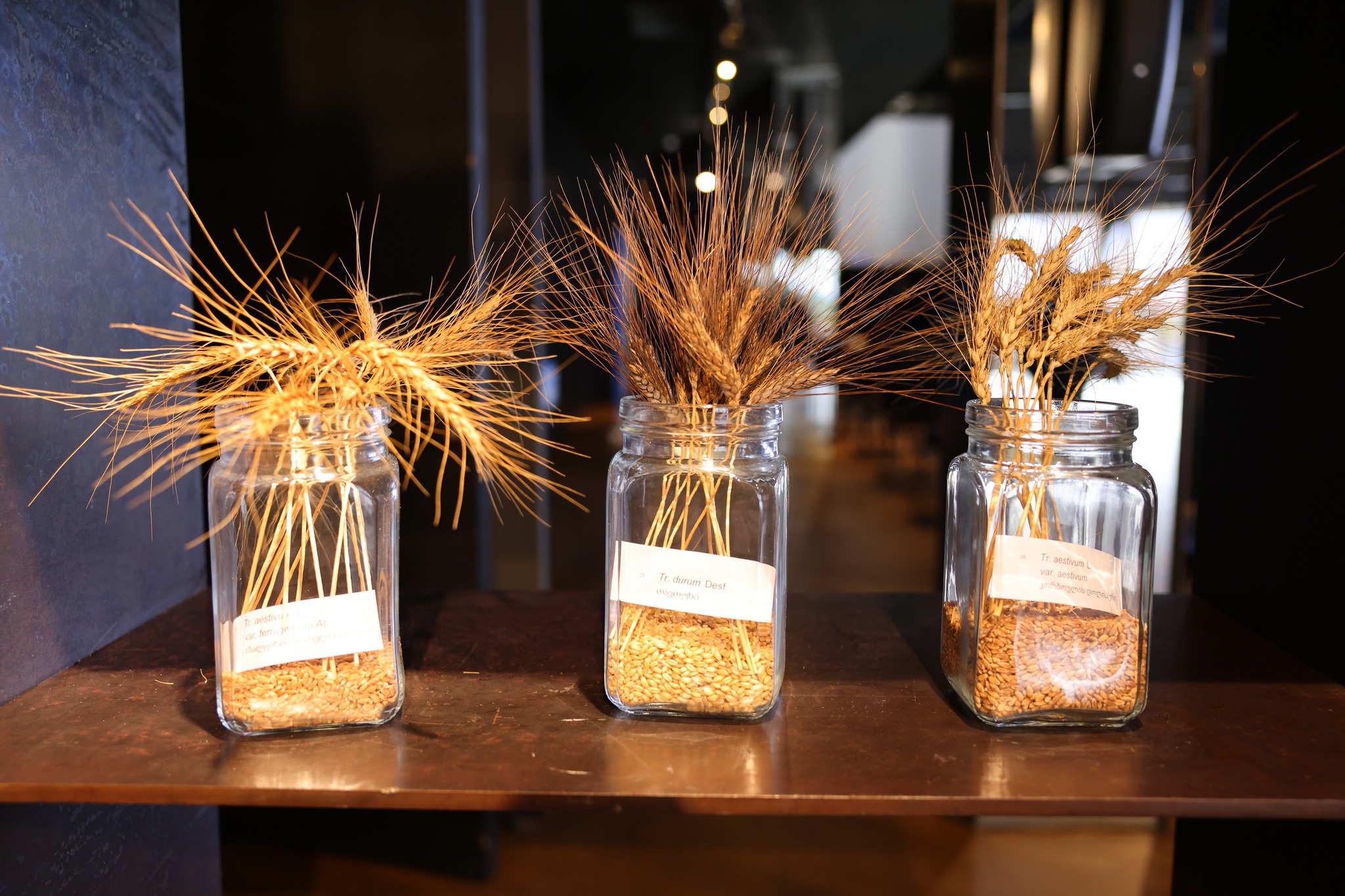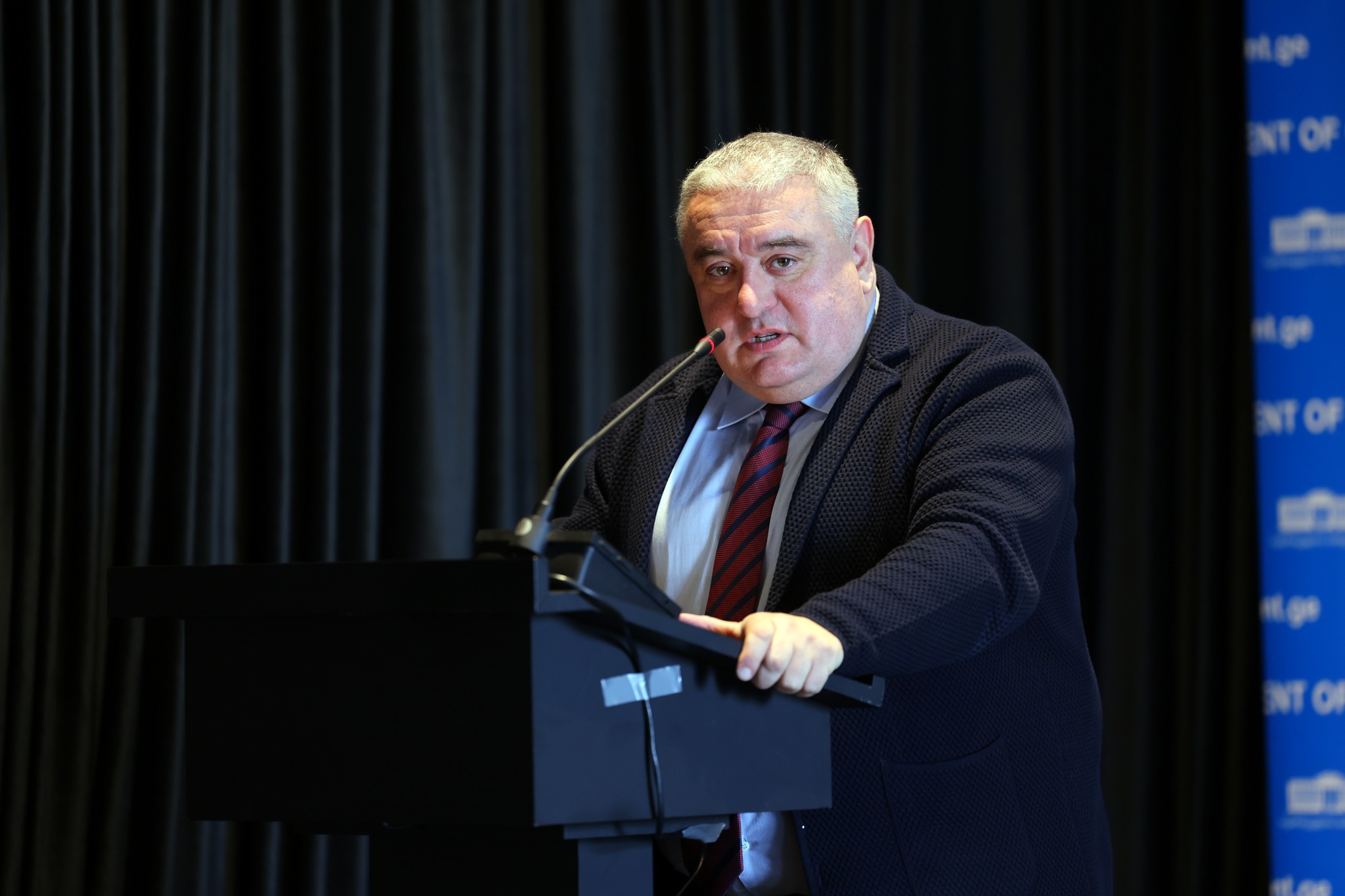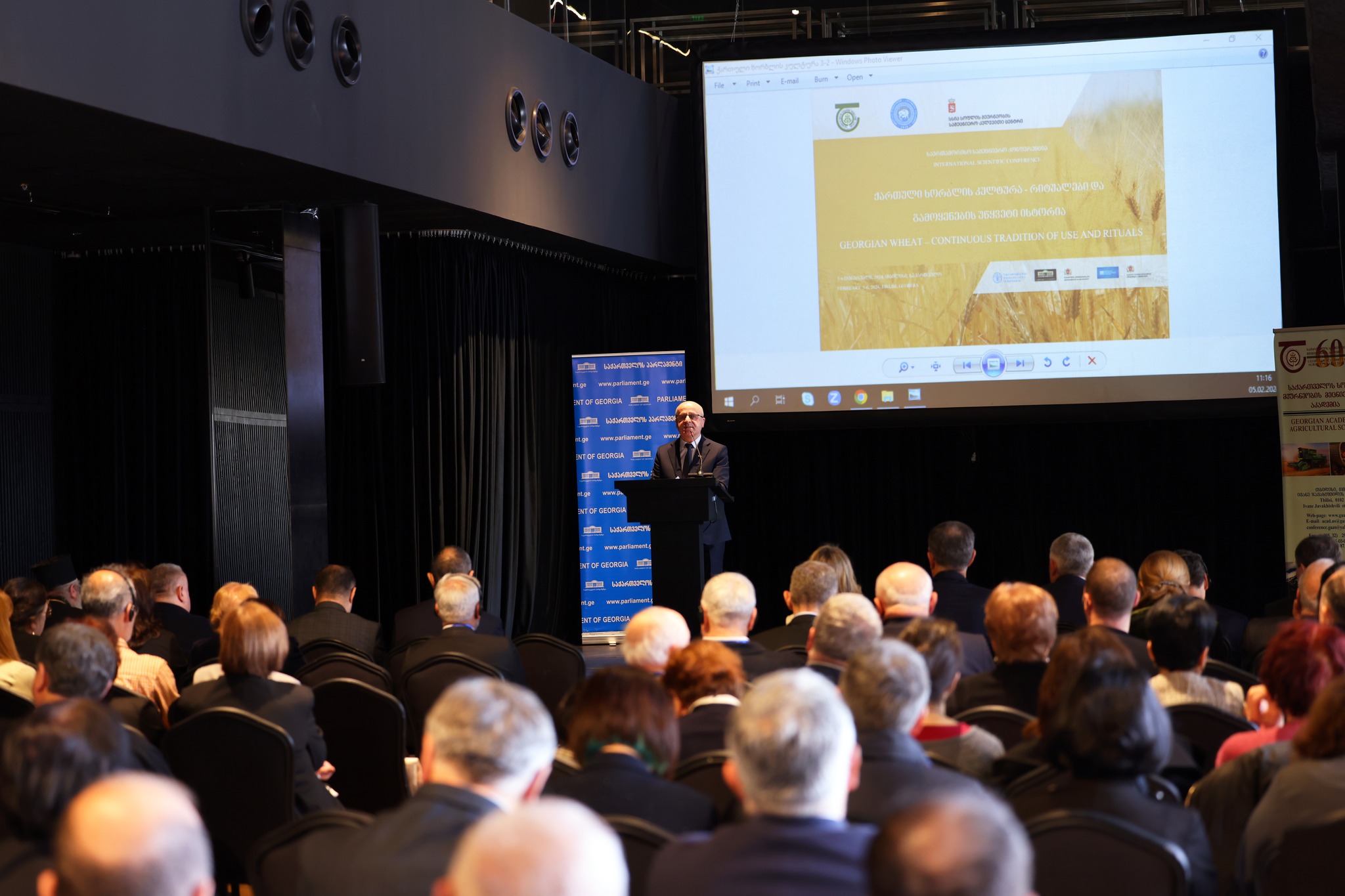News
Tbilisi hosted the International Scientific Conference aimed at protecting and popularizing Georgian Wheat.
On February 5-6, Tbilisi hosted the international scientific conference "Georgian Wheat Culture - Continuous Tradition of Use and Rituals''.
The Georgian Academy of Agricultural Sciences, Ivane Javakhishvili Tbilisi State University, and the Agricultural Scientific Research Centre organized the conference, which embraced up to 80 experts from six countries (Georgia, the United States, the United Kingdom, Japan, Turkey, and Bulgaria).
The Chair of the Agrarian Affairs Committee of the Parliament of Georgia, Mrs. Nino Tsilosani, the Deputy Minister of Environmental Protection and Agriculture, Mr. Yuri Nozadze, and the representative of the United Nations Food and Agriculture Organization (FAO) in Georgia, Mr. Raimund Jehle made opening remarks at the conference.
"The conference is crucial since it concerns the history and traditions of use of Georgian wheat. Georgia is unique in the world with its variety of wheat species. Wheat domestication and cultivation in Georgia dates back thousands of years, as documented historically and scientifically. In recent years, much has been done to restore endemic wheat species. The demand for wheat varieties- restored by the Agricultural Research Center, is annually increasing. Currently, the distribution of restored varieties is underway in farms," said Mr. Yuri Nozadze.
According to the Chair of the Agrarian Issues Committee of the Parliament, Mrs. Nino Tsilosani, Georgian wheat has an honorable place in the world, and the mentioned conference is another step towards its popularization.
"Georgian wheat is proven to be unique with its history, diversity of endemic varieties, and continuation of usage in our culture and traditions. I believe Georgian wheat deserves proper recognition due to its distinctiveness, and we will spare no effort to achieve this purpose," said Mrs. Nino Tsilosani.
In his remarks, the representative of FAO in Georgia, Mr. Raimund Jehle, emphasized the role of wheat as an important element in food security.
"Due to the growing population, the world population will reach 9 billion by 2050. Accordingly, the consumption of wheat crops will increase. We must not reduce our efforts to expand the cultivation of wheat crops. Wheat provides 20% of all energy. Wheat is a crucial component of food security. Out of 27 varieties of wheat, 14 are Georgian, which indicates that Georgia has a great tradition in this direction," said Mr. Raimund Jehle.
During the conference, the parties discussed the history and traditions of wheat production in Georgia. As mentioned, wheat is the oldest culture of Georgia, which has a special place in the history of the country. Wheat was sown in Georgia even before Christ BC, both on the territory of western and eastern Georgia. The earliest wheat samples were found in the territory of Georgia BC, dating back to the V-IV century.
Today, 27 ‘’cultural’’, endemic, and wild species of wheat have been described worldwide, of which 14 species are found in Georgia, including 5 endemic species (Makha, Kolkhuri Asli, Chelta Zanduri, Hexaploid Zanduri, Dika).
Protection and restoration of Georgian endemic species of wheat is of particular importance. In 2018, "Georgian wheat culture" was defined as a category of National Importance and granted the status of an intangible cultural heritage monument.
In addition, work is underway to include ''Georgian wheat culture'' in the list of UNESCO as an intangible cultural heritage in need of urgent safeguarding.
The international conference was conducted through the support of the Ministry of Environmental Protection and Agriculture of Georgia, the Agrarian Issues Committee of the Parliament of Georgia, the UN Food and Agriculture Organization (FAO), the Ministry of Culture and Sports of Georgia, and the Ministry of Education, Science and Youth of Georgia.



